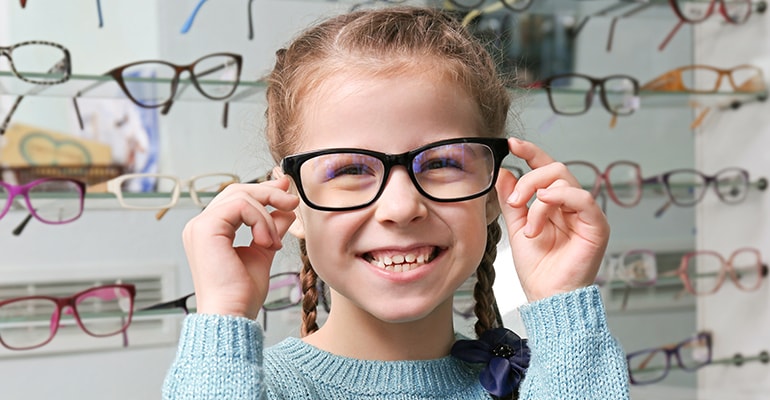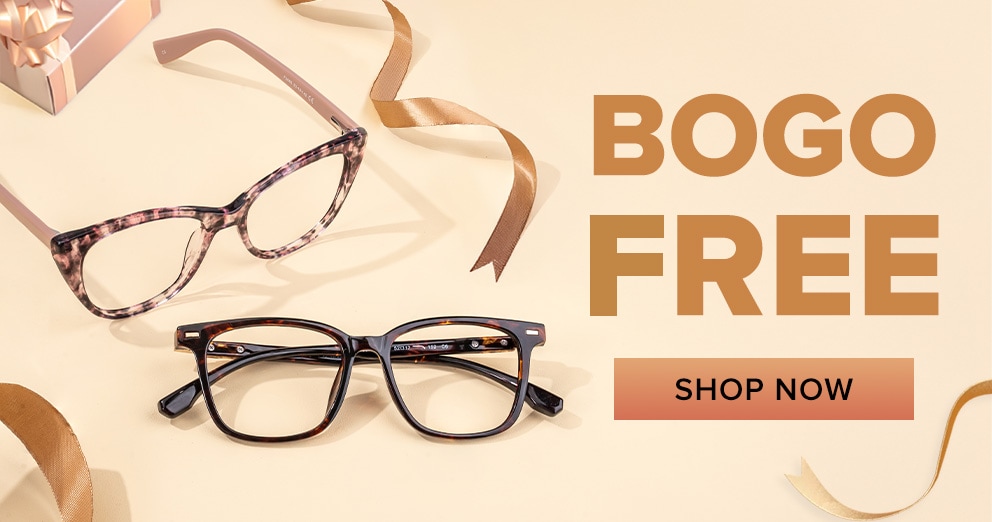Can Nearsighted People Not Wear Glasses?
Feb 27, 2023
Can Nearsighted People Not Wear Glasses?
More or less, people around us can meet individuals who are nearsighted but are not willing to wear glasses, including people with low negative diopters, and extremely nearsighted people. In fact, people perceive the outside world mainly through sight, smell, touch, hearing and taste. Among them, information which comes from sight accounts for more than 80 percent.
As a result, many nearsighted people can do nothing without eyeglasses. As a tool of eyesight correction, a pair of glasses can make up for your refractive defects as well as help you restore the ability of normal people to see far. It is as important and helpful as a mobility aid for someone with a disabled leg.
What Happens if We don't Wear Glasses for A Long Time?
What should be first paid attention to is blurred eyesight. Some people say rhetorically that nearsighted people can't tell the gender from five meters away without glasses. But blurred eyesight can actually cause visual fatigue and enable some older ones get severe headaches. This kind of discomfort is both physical and mental, which can bring double suffering to individuals. After all, for our brain's image processing centers, the brain needs to invoke many resources to overcome blur, such as blur adaptation, blur resolution, eye regulation, and so on. Much of the discomfort of our eyes comes from the fact that we lose the ability to see objects clearly and easily.
Secondly, in addition to blurred eyesight, if extremely nearsighted people leave glasses for a long time, visual function will tend to be abnormal. Besides, long-term blurry eyes will result in reduced ability to adjust. To put it simply, prolonged lack of glasses can lead to disrupted regulation and convergence, thus the system of our eyes will become uncoordinated. When a band is playing, the drums and guitars don't match, then noisy music will be made which is able to enable us crazy. There are similarities between two situations above.
Finally, once long-term visual fatigue, brain fatigue, and visual dysfunction appear, there is a high probability of a significant increase in diopters. The higher the level, the less one can see and the more dependence on glasses one needs, which creates a vicious cycle.

What Effect does not Wearing Glasses have on Children?
For nearsighted children, not wearing glasses to correct long-term blurred eyesight will lead to a faster decline in eyesight. And the development of visual function will be blocked. Not wearing glasses for a long time can make correction less effective or even cause amblyopia, and it will be more difficult to correct for them growing up into adults. Teenagers and children with kids eyeglasses need vision correction as early as possible so that the eyes can maintain the best clarity, which is conducive to visual development as well as the stability of diopters.

How to Improve Eyesight for Children?
By correcting bad eye habits, it would be beneficial for them to engage in more outdoor exercise, pay attention to the rest of the eyes, and supply the necessary nutrients to improve children's eyesight.
All in all, glasses are just tools to help us restore normal eyesight and far-sighted function. Like corrective surgery, the refractive status of nearsightedness is not changed. So they ought to develop good living habits, pay attention to rest, not over-rely on glasses to improve their eyesight.
FAQs about Wearing Glasses
Can we not Wear Glasses after the Diopters are Stable When We Become Adults?
While it may not increase significantly in adulthood, that doesn't mean it should be stable all the time. On the contrary, various types of eye problems can occur as we age. If we don't wear glasses and don't care for our eyes, then our eyes will have other problems in addition to the original nearsightedness, such as presbyopia and so on.
Do We Have to Wear Glasses All the Time?
Despite the old saying that you are supposed to never take off your glasses once you've put them on, it's imperative for us to give your eyes some time to relax. During the lunch break or at night when we don't need to use our eyes frequently, we can take off our glasses and close our eyes to relax them in order to relieve our fatigue.
